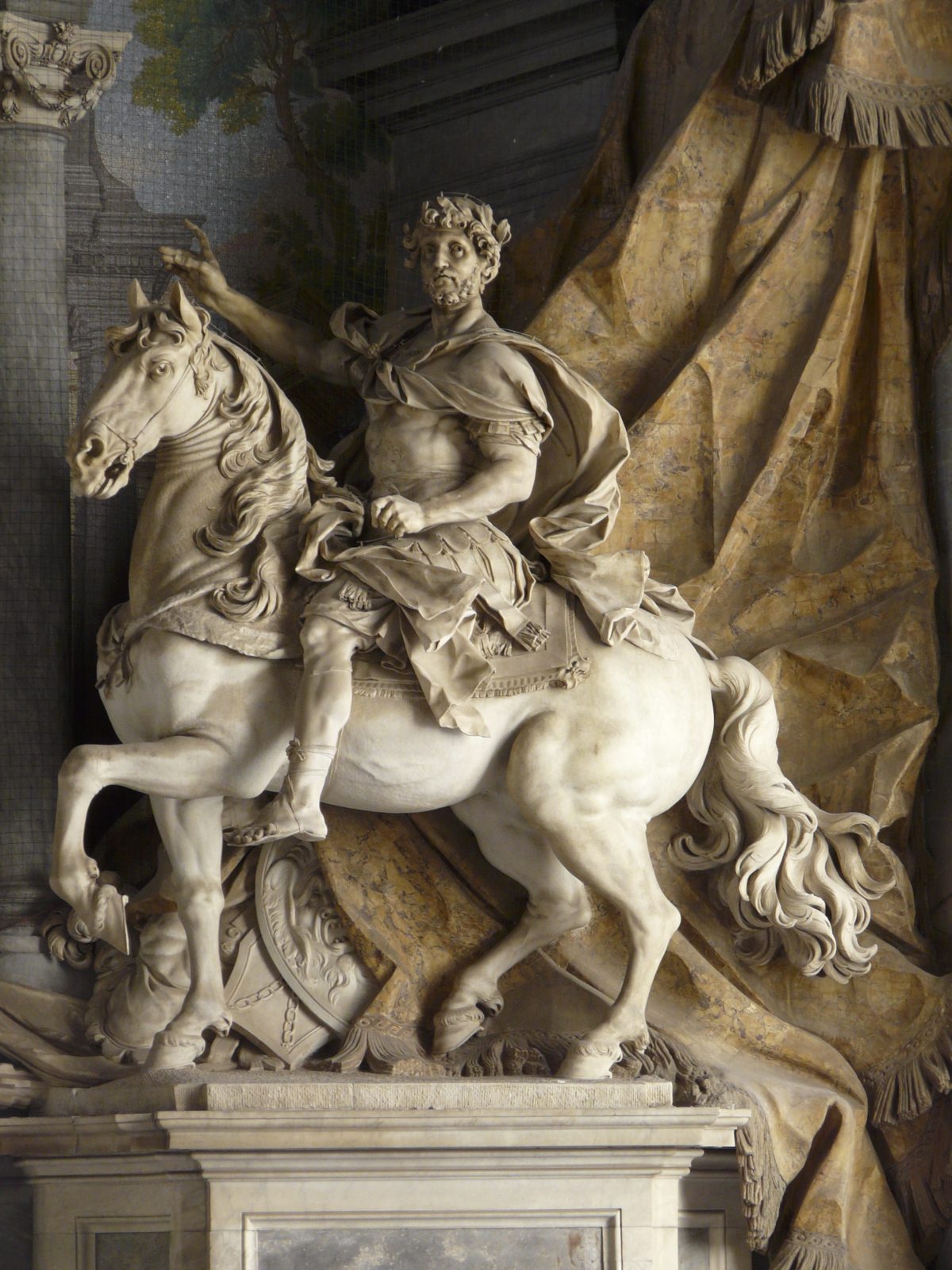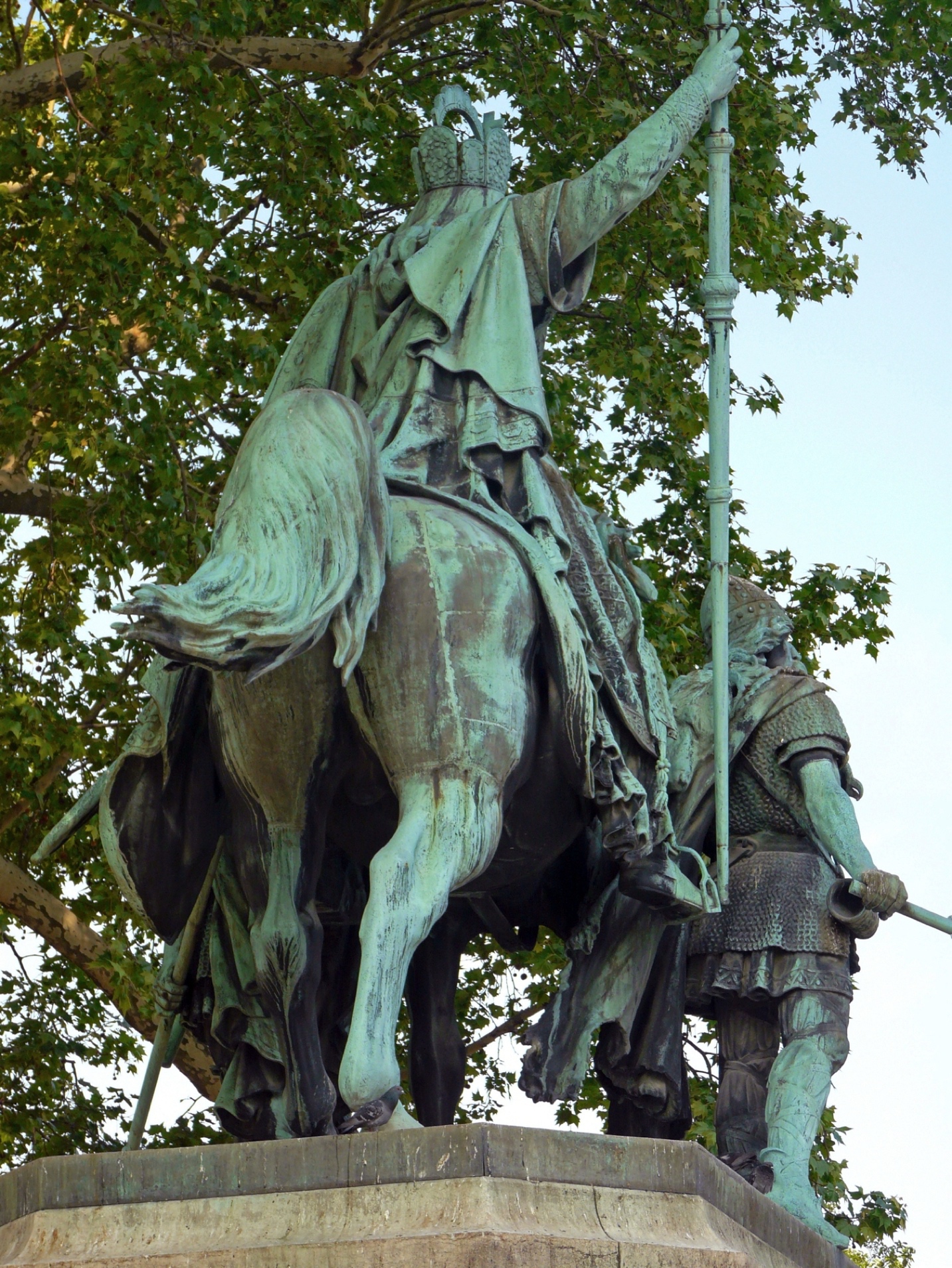Charles The Great: A Legendary Figure Who Changed The Course Of History
Let’s dive into the story of Charles The Great, a name that echoes through the corridors of time and history. This isn’t just another tale; it’s an epic journey of a man who shaped Europe as we know it today. Charles The Great, also known as Charlemagne, was more than a king—he was a visionary, a warrior, and a leader who left an indelible mark on the world. His reign wasn’t just about wars and conquests; it was about building a legacy that would inspire generations.
Now, you might be wondering, why should you care about Charles The Great? Well, buckle up because this is no ordinary story. This dude didn’t just sit on his throne and call it a day. He redefined leadership, education, and even the concept of Europe itself. His influence stretches far beyond the battlefield, and his impact is still felt today in the way we think about governance and culture.
So, whether you’re a history buff, a curious mind, or someone who loves a good underdog story, this article is for you. We’re going to break down who Charles The Great really was, his achievements, his challenges, and why he matters. Let’s get started, shall we?
Read also:Alex Jackson The Rising Star Shaping The Future Of Tech
Table of Contents
- Biography of Charles The Great
- Early Life and Family Background
- Rise to Power: How He Became King
- Military Achievements: The Conquests That Defined Him
- The Carolingian Renaissance: A Cultural Revolution
- Administration and Governance: Running an Empire
- The Legacy of Charles The Great
- Impact on Modern Europe
- Interesting Facts About Charles The Great
- Conclusion: Why Charles The Great Still Matters Today
Biography of Charles The Great
Before we dive deep into the details, let’s take a quick look at who Charles The Great really was. This guy wasn’t just any king; he was the first Holy Roman Emperor and the ruler of the Carolingian Empire. His full name was Charles I, but history knows him as Charlemagne, which means “Charles the Great” in Old French.
He was born around 742 AD in what is now modern-day Belgium or Germany, depending on who you ask. His family, the Carolingians, were a powerful dynasty, and his father, Pepin the Short, was already a king. Charles inherited the throne in 768 AD and went on to become one of the most influential figures in European history.
But don’t think this guy just sat around and ruled. Oh no, Charles The Great was all about action. He expanded his empire through military campaigns, promoted education and the arts, and even tried to bring peace to a chaotic world. His reign wasn’t perfect, but it was certainly memorable.
Early Life and Family Background
Charles The Great wasn’t born with a silver spoon—or at least, not in the way you might think. His father, Pepin the Short, was a Frankish king who had overthrown the Merovingian dynasty. So, Charles grew up in a world where power was won and lost through sheer will and determination.
His early years were filled with lessons in leadership, strategy, and governance. By the time he became king, Charles was already a seasoned warrior and a shrewd politician. But it wasn’t just about the family name; Charles had to prove himself every single day.
And let’s not forget his siblings. Charles shared the throne with his brother, Carloman, for a while, but things got a little complicated when Carloman died suddenly in 771 AD. That left Charles as the sole ruler of the Frankish Kingdom, and boy, did he make the most of it.
Read also:Alex Tikas The Man Who Revolutionized Digital Marketing Strategies
Rise to Power: How He Became King
Becoming king wasn’t exactly a walk in the park for Charles. Sure, he inherited the throne, but ruling an empire is a whole different ballgame. When his father, Pepin the Short, passed away in 768 AD, Charles and his brother Carloman were supposed to co-rule the kingdom. But as you can imagine, sharing power isn’t always easy.
After Carloman’s death, Charles faced a ton of challenges. There were rebellions, rival factions, and even threats from neighboring kingdoms. But instead of backing down, Charles took charge. He expanded the Frankish Kingdom through a series of military campaigns, conquering lands that would eventually become part of his empire.
And here’s the kicker—he didn’t just conquer; he also negotiated. Charles was a master of diplomacy, and he knew when to fight and when to talk. This combination of military prowess and political savvy made him one of the most effective rulers of his time.
Military Achievements: The Conquests That Defined Him
Now, let’s talk about the battles. Charles The Great wasn’t called “The Great” for nothing. His military achievements were nothing short of legendary. Over the course of his reign, he led more than 50 military campaigns, expanding his empire across Europe.
- The Lombard Campaign: In 774 AD, Charles defeated the Lombards and added their kingdom to his empire. This victory gave him control over much of Italy.
- The Saxon Wars: The Saxons were a tough bunch, and it took Charles more than 30 years to subdue them. But in the end, he succeeded, converting them to Christianity and incorporating their lands into his empire.
- The Spanish Campaign: Charles even ventured into Spain, although this campaign didn’t go as smoothly as the others. Still, it showed his ambition and willingness to push the boundaries of his empire.
These campaigns weren’t just about expanding territory; they were also about spreading Christianity and promoting Frankish culture. Charles believed in a united Europe under one ruler, and he was willing to fight for it.
The Carolingian Renaissance: A Cultural Revolution
But Charles wasn’t all about war and conquest. He was also a patron of the arts and a champion of education. During his reign, Europe experienced what is now known as the Carolingian Renaissance, a cultural revival that brought back the glory of classical learning.
Charles established schools, invited scholars from across Europe, and even founded the Palace School at Aachen, where he himself studied. He encouraged the copying of ancient manuscripts, which helped preserve valuable knowledge that might have been lost forever.
And here’s something cool—he promoted the use of a standardized script called Carolingian minuscule. This made it easier for people to read and write, and it laid the foundation for modern European languages.
Administration and Governance: Running an Empire
Running an empire the size of Charles’ wasn’t easy. He had to ensure that his vast territories were well-governed and that his people were taken care of. To do this, he relied on a system of administrators called missi dominici, who traveled throughout the empire to enforce his laws and collect taxes.
Charles also believed in justice and fairness. He issued a series of laws, known as capitularies, that addressed issues like crime, trade, and even religious practices. These laws were designed to bring order to his empire and ensure that everyone played by the same rules.
But let’s not forget about the economy. Charles promoted trade and commerce, encouraging the growth of towns and cities. He also standardized weights and measures, making it easier for merchants to do business across his empire.
The Legacy of Charles The Great
When Charles The Great passed away in 814 AD, he left behind a legacy that would shape Europe for centuries to come. His empire laid the groundwork for modern nation-states, and his ideas about governance and education continue to influence leaders today.
But his legacy isn’t just about politics and power. Charles was a man who believed in unity, progress, and the power of knowledge. He showed that a ruler could be both a warrior and a scholar, a conqueror and a builder.
And let’s not forget his impact on Christianity. Charles played a key role in spreading the faith across Europe, and his coronation as the first Holy Roman Emperor in 800 AD marked a turning point in the relationship between church and state.
Impact on Modern Europe
So, how does Charles The Great’s story matter today? Well, his vision of a united Europe is still relevant in a world where borders are becoming less important. The European Union, for example, owes a debt to Charles’ dream of a continent that works together for the common good.
His emphasis on education and cultural preservation also resonates in today’s world, where knowledge is more accessible than ever before. And his example of leadership shows that a great leader doesn’t just rule; they inspire, innovate, and leave a lasting legacy.
Interesting Facts About Charles The Great
Before we wrap up, here are a few fun facts about Charles The Great:
- He was reportedly over 6 feet tall, which was pretty impressive for his time.
- Charles spoke several languages, including Latin, Greek, and Frankish.
- Despite being a powerful ruler, Charles was known for his humility and simplicity. He reportedly enjoyed spending time with scholars and even played games with his children.
- His nickname, “The Great,” wasn’t just a title; it reflected the respect and admiration he earned from his contemporaries.
Conclusion: Why Charles The Great Still Matters Today
So, there you have it—the incredible story of Charles The Great. This guy wasn’t just a king; he was a visionary who changed the course of history. From his military conquests to his cultural achievements, Charles left a mark that is still felt today.
But why does this matter to you? Well, Charles’ story is a reminder that leadership isn’t just about power; it’s about vision, innovation, and the ability to inspire others. His legacy shows us that even in a chaotic world, it’s possible to create something lasting and meaningful.
So, what do you think? Did Charles The Great inspire you? Let us know in the comments below, and don’t forget to share this article with your friends. Who knows? You might just spark a conversation about history, leadership, and the power of a great idea.


:max_bytes(150000):strip_icc():focal(749x0:751x2)/king-charles-012624-2-9cd6206f354d4e72bce30af1bb8b91af.jpg)